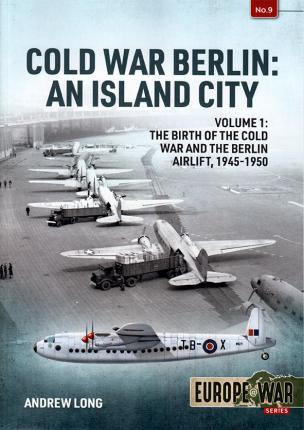At the end of the Second World War, the city of Berlin was located 100 miles (160 km) inside the Soviet Occupation Zone of Germany. The Western Allies insisted on keeping part of the city for themselves, and so it was divided into four sectors, mimicking the rest of Germany. Stalin needed to persuade the British, French and Americans to leave so that there would be nothing in the way of him completing the strategic buffer of territory reaching from the Baltic Sea to the Adriatic, which Churchill would later christen the ‘Iron Curtain’.
Cold War Berlin: An Island City is the story of how Stalin imposed his iron will over eastern Germany, and how he tried to squeeze his former allies out by cutting off their lines of supply and blockading the city. It examines the logistical miracle of the Berlin Airlift, which fed and heated a city of over two million people for almost eleven months. It is a story of alliances forged in the uncertainty of conflict, based on common interests and pragmatic convenience, alliances that would shape the twentieth century but would be betrayed for strategic or political reasons. It is also the tale of how competing ideologies came face to face in the city of Berlin and the new 'Cold War' that would come to dominate the second half of the 20th century was created out of the embers of the Second World War.
The book is richly illustrated with photos, numerous maps and colour profiles and is the first in a mini-series by this author for Helion’s Europe@War series on Cold War Berlin.









